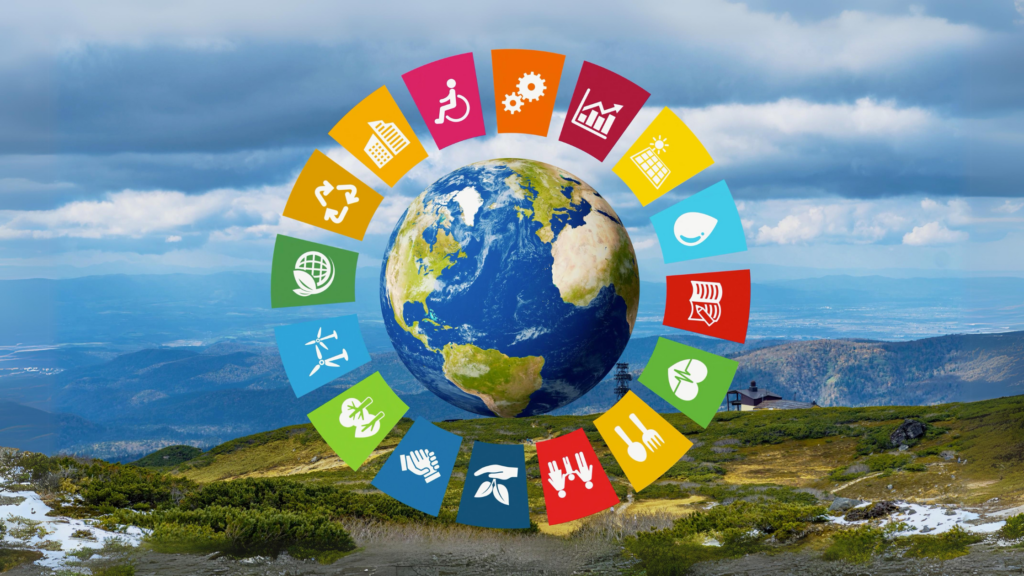Environmental destruction, war, human rights violations, gender inequality — there’s no shortage of issues you may not want to support with your investments. Canadians who want to make an impact are recognizing the appeal of investing in companies that align with their values — and divesting from those that don’t.
In 2023, Canadian-based sustainable funds saw more than $2 billion in net new assets, and globally, 77% of investors now say they’re interested in investing for impact. Yet while an appetite for investments with a conscience has hit the mainstream, so, too, have concerns that funds and organizations may fall short of what good they purport to do. Three in four Canadians polled said they’re worried about greenwashing, the practice of giving false or misleading statements about how sustainable a fund is. Indeed, one 2023 Deloitte survey found that 57% of Canadian consumers no longer trust firms’ environmental claims.
It’s no wonder investors want to ensure their money isn’t funding activities that go against their personal values. That’s why our responsible investing portfolios are built with a key feature to assure investors their dollars are making a difference where they want them to: screens.
Screening out the bad actors

With a wide variety of screens, our responsible investing portfolios give investors the ability to remove certain types of companies – or even whole industries – from their portfolios.
Our impact funds screen out harmful companies or industries and invest for tangible positive social or environmental impact, while our socially responsible investing portfolios screen out industries by focusing on a ‘do no harm’ approach.
So, how do we determine which companies don’t make the cut? We rely on initial screening information from our data partners Sustainalytics, Impact Cubed and MSCI, but in some cases, we go in with a stricter threshold to ensure an even tighter values fit.
Aligning with the United Nations’ Sustainable Development Goals

One way of determining companies’ stance on sustainability issues is assessing where they sit in relation to the United Nations’ Sustainable Development Goals (SDGs). The SDGs were set in 2015 to inspire action on urgent global issues. There are 17 goals covering the gamut of global areas of concern, ranging from climate action to the eradication of poverty, and we are currently aligning our portfolios with seven of them.
Despite an increase in companies committing to the UN’s SDGs over the last decade, research has found evidence of SDG-washing, where corporations’ public commitments to global sustainability movements don’t result in socially responsible investments for Canadians.
Screening out the worst offenders can give investors the peace of mind they need to feel confident that their dollars are working the way they want them to.
The Genus impact and ESG screens
Our screens, which originally started with fossil fuels, have expanded to include a wide range of issues and industries, including:
Fossil fuels
Aligned with SDG 7, Affordable and Clean Energy, our Responsible and Fossil Free funds screen out companies and activities with a negative impact on the planet. This screen eliminates companies engaged in oil-and-gas extraction or distribution.
Fossil fuel financing
When applied to our Fossil Free and High Impact Funds, this screen removes companies with known revenue derived directly from fossil fuels, including banks that are the top funders of oil and gas projects globally.
Alcohol and tobacco

This investing screen excludes companies that profit from known harms such as alcohol and tobacco-related products. These firms are essentially misaligned with SDG 3, Good Health and Well-Being, resulting in their omission from our High Impact Equity Fund.
Gender equality
This screen excludes companies that contribute negatively to UN SDG 5: Gender Equality.
Using data from MSCI ESG Manager, a firm’s product and operational alignment is assessed
with things like gender discrimination, product safety and customer discrimination or restriction taken into consideration.
Reducing inequalities

Companies that contribute negatively to SDG 10: Reduced Inequalities, are excluded with this screen. Predatory lending and controversies related to labour, human rights, customers and governance can lead to a company’s omission.
Controversies
This screen excludes companies involved in severe controversies within specific local or global communities, or surrounding certain products. A controversy is defined based on third-party data, which includes information from non-governmental organizations, watchdogs, news agencies, social media and other sources around the world.
Responsible Production and Consumption
We can’t address climate change without addressing production and consumption. This screen allows investors to support sustainable production patterns by investing in companies that adhere to SDG 12: Responsible Production and Consumption.
Biodiversity
The loss of biodiversity is a planetary risk that rivals climate change in its potential to affect nature and our collective well-being. Our biodiversity screen excludes 40 of the lowest-performing companies in biodiversity impact from our funds and portfolios. For example, heavy users of palm oil that lack established best practices for procuring from certified sustainable sources are omitted.
Indigenous conflict
Our Indigenous conflict screen excludes companies that have severe or high conflicts with Indigenous communities globally. All of our Fossil Free and High Impact Funds incorporate the Indigenous Conflict screen.
Education

As a catalyst for sustainable development, quality of life and progress, there’s a reason why impact investors choose to target quality education. Our Education investing screen excludes companies based on their net alignment to SDG 4: Quality Education, allowing Genus clients to direct their funds to companies that are advancing education globally and away from companies that use child or forced labour.
Sustainable cities
The world’s cities contribute to 70% of global carbon emissions. Our sustainable cities screen leaves out companies whose products and services aren’t in alignment with SDG 11: Sustainable Cities and Communities. Companies receive demerits based on factors such as resource inefficiencies and involvement in controversies related to suppressed civil rights and lack of access to basic needs such as housing.
Our portfolios are regularly evaluated and rebalanced based on new data and emerging evidence, meaning: even after getting screened out, a company can make a comeback. But, until they do, we crunch the data so you don’t have to. Our investing screens give investors an honest, authoritative look at where companies really stand.
Looking to screen out companies or practices that don’t align with your values? Get started today with our digital and personal wealth management services.
References:
- LeClair, D. (2024) Canadian investors stuck with ESG in 2023, Morningstar CA. Available at: https://www.morningstar.ca/ca/news/246857/canadian-investors-stuck-with-esg-in-2023.aspx (Accessed: 13 September 2024).
- Mason, L. (2024) Four reasons why sustainable investing is becoming more popular, Credit Card, Mortgage, Banking, Auto. Available at: https://www.chase.com/personal/investments/learning-and-insights/article/four-reasons-why-sustainable-investing-is-moving-into-the-mainstream (Accessed: 13 September 2024).
- Ziafati, N. (2024) Greenwashing, Greenhushing and greenwishing: The new Sustainable Finance lingo, Investment Executive. Available at: https://www.investmentexecutive.com/news/from-the-regulators/greenwashing-greenhushing-and-greenwishing-the-new-sustainable-finance-lingo/ (Accessed: 13 September 2024).
- Conversation, T. (no date) Canada’s anti-greenwashing rules are good business. critics exaggerate the dangers, Ivey Business School. Available at: https://www.ivey.uwo.ca/impact/read/2024/06/canada-s-anti-greenwashing-rules-are-good-business-critics-exaggerate-the-dangers/ (Accessed: 13 September 2024).
- SDG-washing found among Canada’s top companies (2024) Waterloo News. Available at: https://uwaterloo.ca/news/media/sdg-washing-found-among-canadas-top-companies (Accessed: 13 September 2024).
- Goal 3 | Department of Economic and Social Affairs (no date) United Nations. Available at: https://sdgs.un.org/goals/goal3 (Accessed: 13 September 2024).
- Goal 5 | Department of Economic and Social Affairs (no date) United Nations. Available at: https://sdgs.un.org/goals/goal5 (Accessed: 13 September 2024).
- Reduce inequality within and among countries – united nations sustainable development (no date) United Nations. Available at: https://www.un.org/sustainabledevelopment/inequality/ (Accessed: 13 September 2024).
Goal 12 | Department of Economic and Social Affairs (no date) United Nations. Available at: https://sdgs.un.org/goals/goal12 (Accessed: 13 September 2024).
- Goal 4 | Department of Economic and Social Affairs (no date) United Nations. Available at: https://sdgs.un.org/goals/goal4 (Accessed: 13 September 2024).
- Goal 11 | Department of Economic and Social Affairs (no date) United Nations. Available at: https://sdgs.un.org/goals/goal11 (Accessed: 13 September 2024).











